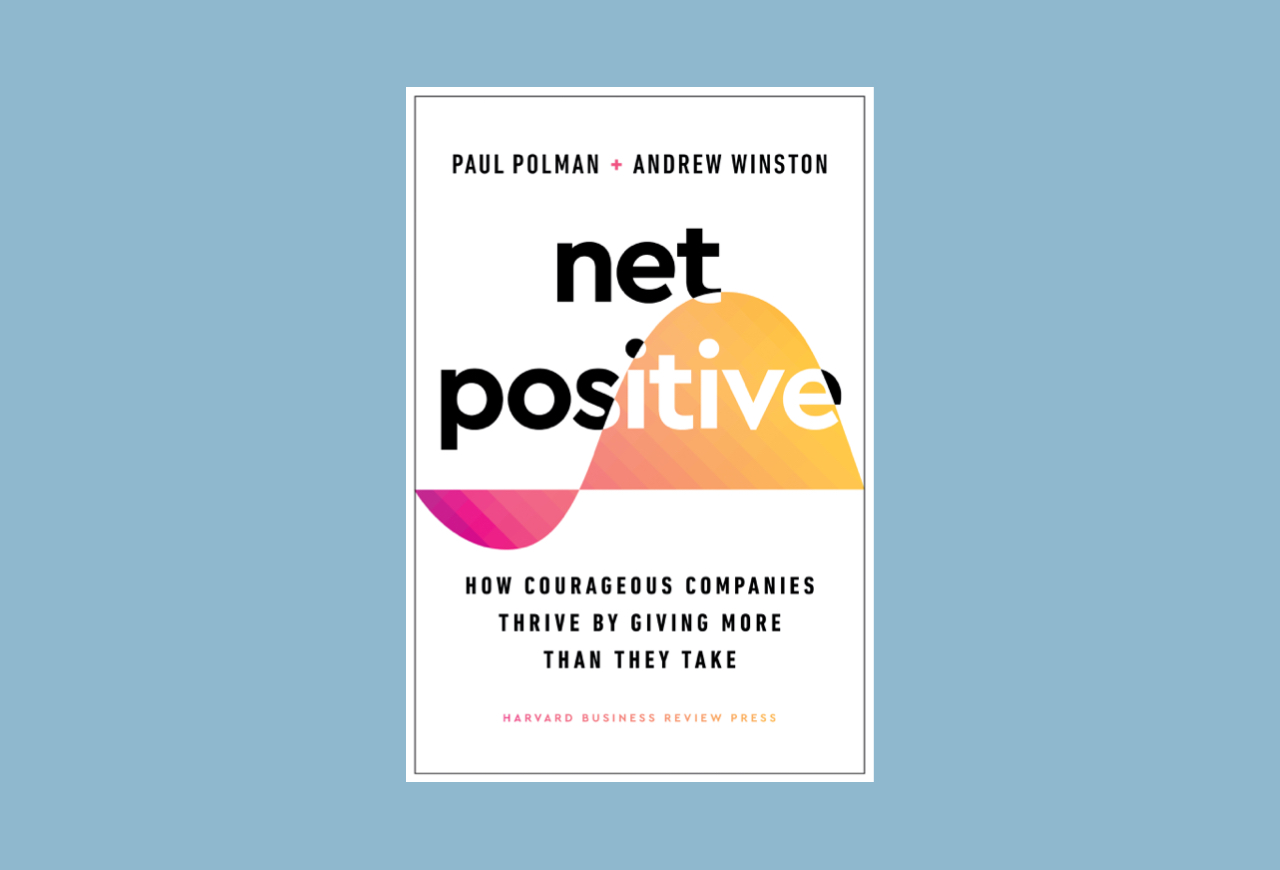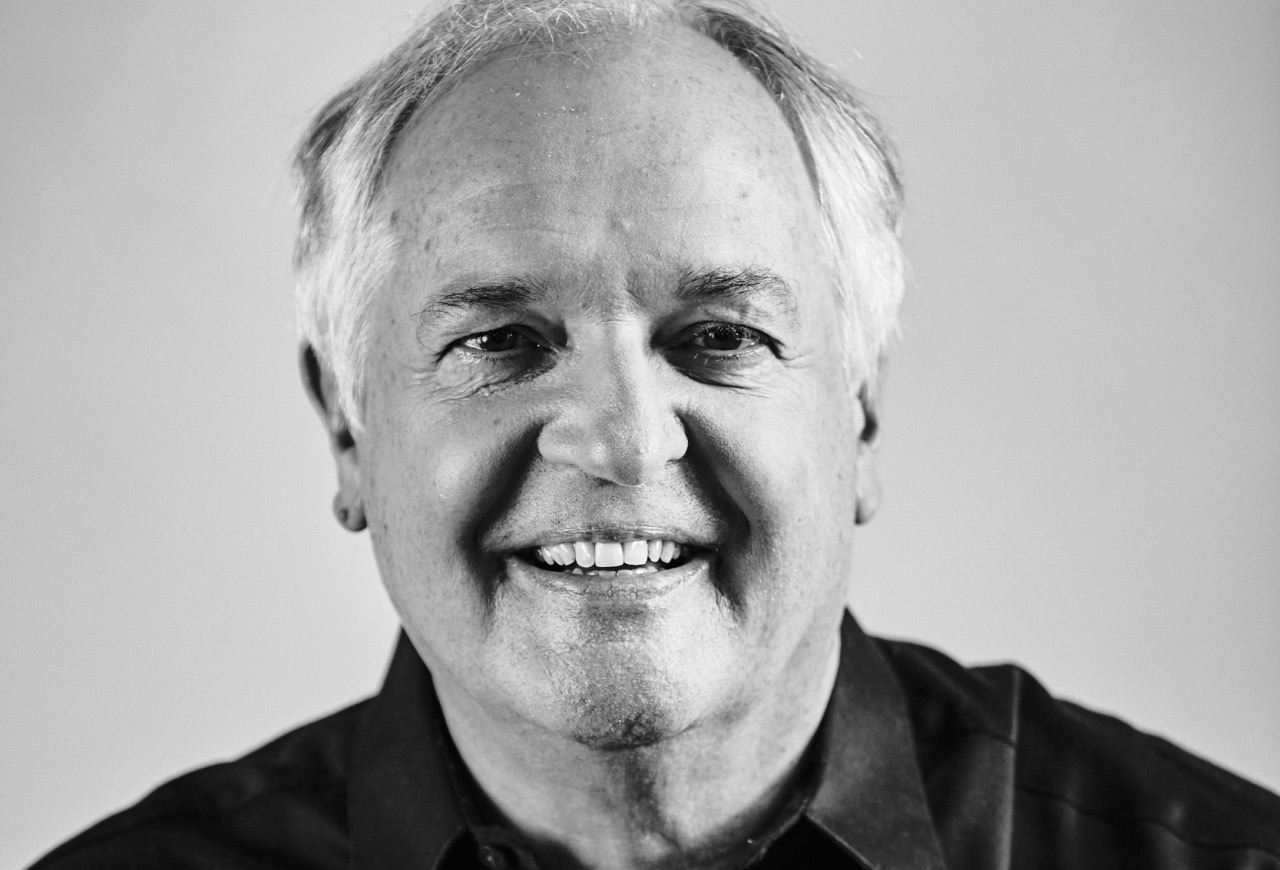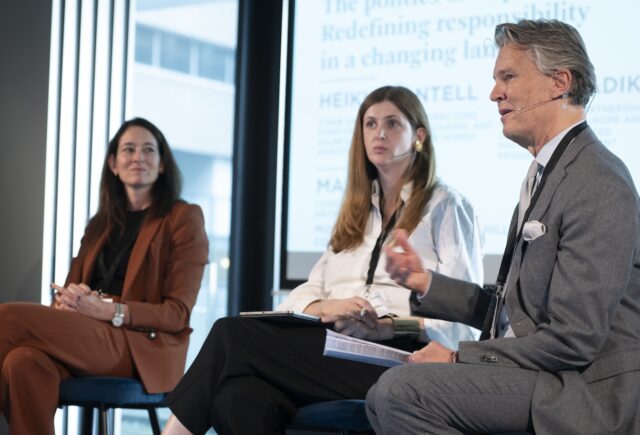In ‘Net Positive’, Unilever’s former CEO Polman and sustainability expert Winston reflect on decades of corporate experience and argue that companies can prosper by giving more than they take

In brief
- This is very much the gospel according to the saints at Unilever, but that is a no bad thing. With its global reach, the company and its leaders are uniquely placed to understand the world’s problems
- The usual suspects are rounded up to help us create a ‘Net Positive World,’ in a book that seems very much directed at fellow Olympians
- But there’s plenty for us mortals to get our teeth into, as we go in search of the various elephants lurking in the C-suite
Paul Polman was CEO of Unilever from 2009-19 and has been described by The Financial Times as a “standout CEO of the past decade”. He has teamed up with sustainability writer Andrew Winston to write not “a utopian fantasy”, but rather a manifesto to deliver “the scale of change and transformation the world so desperately needs”.
The two sometimes speak with one voice and sometimes individually, which can be confusing.However, they succeed, no doubt in part because of their experience working together. Winston sat on Unilever’s North American sustainability board in the 2010s, though, as he confesses, this means he is “not unbiased”.

Praise for Unilever is throughout the book, and the intellectual spring point is the failed bid from Heinz in 2017, which is characterised as “a larger battle for the soul of business” between “different models at different ends of the spectrum”.
One serves “a handful of the owners of capital and funnels the gains to them”. The other sees the purpose of business differently, seeking to help “the world tackle the biggest challenges, such as climate change, inequality, and poverty…”
That ‘net positive’ is summarised as “a business that improves well-being for everyone it impacts…and even future generations and the planet itself. This is a North Star. No company can achieve all these aims at once, but it’s where we should be heading”.
As the authors say in a wonderful vignette cheekily entitled ‘Don’t read this book’ “we need people who want to have an impact…go big or go home”.
The usual suspects
Inevitably much of what the authors have to say is a roundup of the usual suspects. A CEO (and one sometimes has the feeling that is the only audience the authors really care about) is exhorted to become a “courageous net positive leader” who “unlocks a company’s soul” to “blow up boundaries” while at the same time espousing “transparency” and “building trust”.

None of this is particularly new, although it is given a distinctive informed twist by the size and scale of Unilever and its global operations. “Paul was sometimes criticized for ‘taking his eye off the ball’ and focussing too much on meetings with the United Nations, leading task forces for the G7 or G20, or championing broader societal causes.” One can just imagine.
Informed by Unilever’s global footprint, this leads on to a very interesting chapter on the importance of the private sector working closely with the public sector and civil society. This is most obvious in discussion of the global palm oil scandal, which the authors describe, with tongue definitely in cheek, as something “Unilever was not unaware of”.
Palm oil is of course a key ingredient in many of Unilever’s largest products – soap and shampoo but also cookies, bread dough and even ice cream. Apparently, “Indonesia’s palm oil plantations cover 16 million hectares…up from [just] one million in 1990.” And most “of that growth came from burning virgin forests”.
One can only hope that Unilever’s initiative with the &Green fund succeeds in “converting operations to better methods”. Watch this space.
‘Embracing elephants’
By far the most interesting part of this book is where the authors discuss “managing issues nobody wants to talk about…but we can’t avoid”, something they refer to as ‘embracing elephants’.
There’s quite a lot on this list starting with tax. “In a 2018 analysis, of the 379 profitable companies in the Fortune 500 almost one-quarter paid an effective tax rate of zero percent or less.” The authors call for an international minimum tax rate, which of course has since happened.
There is an attack on continuing corporate corruption which we are told siphons “$1.26 trillion away from developing countries each year” and “adds 10 percent to the cost of doing business globally”. If someone asks for a bribe it is suggested to find another way to do something for them that is legal. Otherwise, identify “moon markets – so corrupt that you treat them as if they’re as inaccessible as the moon”.
The authors are not afraid to throw shade where appropriate (and not just on Heinz). In an interesting diversion on why share buybacks are so “dangerous” and an example of “bad management”, we are told Boeing spent some $43billion on them. “Is it surprising that Boeing ended up making major shortcuts on design and safety?” the authors ask.
Of course, there is one elephant that is not discussed. The role of major food conglomerates like Unilever in the growing obesity epidemic. But maybe that is an issue nobody wants to talk about.





